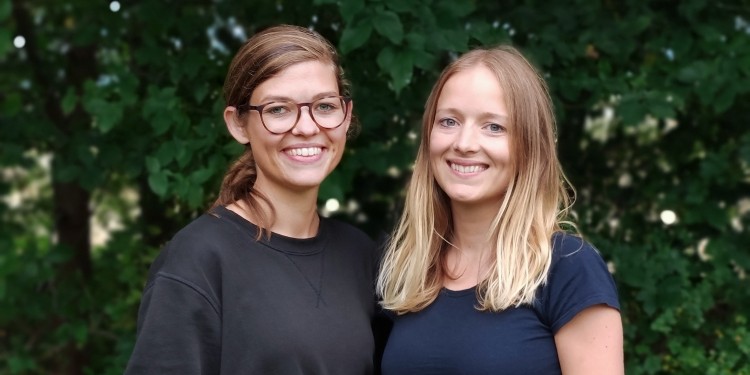
Sustainable alternative to plastic – made from grain crop residues
Putting tomatoes into a thin plastic bag in the supermarket: it’s quickly and easily done. Thanks to the bag, they arrive safe and sound in the kitchen at home, where the plastic bag – which could still actually be used – is deposited in the waste. And that is what happens to much of the more than 400 tonnes of plastic which are produced worldwide every year. What then happens to the waste, however, is a problem for us humans and for the environment. According to statistics published by the Organisation for Economic Cooperation and Development (OECD), only 15 percent of plastic waste worldwide is collected for recycling purposes. 46 percent ends up in landfills, where it can have a harmful impact on the groundwater and on animal life. 17 percent is incinerated, which in turn releases the greenhouse CO2. 22 percent ends up unchecked in nature as well as in the seas and oceans, where animals choke on the plastic and microplastic finds its way into the food chain. The huge plastic waste vortex in the Pacific Ocean has long since become an iconic image.
The aim which Johanna Baare, an entrepreneur and psychologist, and chemical engineer Dr. Anne Lamp have is nothing less than the solution to this global problem of plastic pollution. In September 2020 the two of them established a start-up in Hamburg called “traceless materials”, which today has a staff of 23. “Traceless” refers to the amber-coloured material which Lamp, 31, developed and which is produced from grain crop residues. Within just a few weeks it can be composted naturally and in its entirety. The idea won over the German Founders Award jury, which in September announced its choice of the two women to receive the award in the “start-up” category.
Johanna Baare and Anne Lamp met while working on the Berlin “ProjectTogether”, which brings together people who have ideas and people who have business experience. “When I saw Anne’s invention, I thought straight away, ‘That has to be marketed’,” says Baare, 33. And what is special about the material? “It is sustainable in an holistic way. It doesn’t compete with food, and the consumption of resources is low. Also, we don’t use any crude oil or chemicals which can be harmful to the environment.”
This so-called “second-generation biomass” provides precisely those functions which make plastic so attractive: the material is fat- and water-repellent and can be processed just like plastic with the machinery which already exists in industry. traceless manufactures it as a bio-granulate so that a lot of different products can be made from it.
“Industry is very interested in it,” Baare reports. “For example, we’re collaborating with Lufthansa and the mail-order company Otto, working on pilot projects for packaging material.” The most important task at the moment is to expand production from pilot-project scale (at the company’s location in Buchholz, south of Hamburg) to an industrial scale in order to meet the high level of demand and achieve competitive pricing. To this end, the company is looking for investors for a larger production facility. In previous rounds of funding, the company was very successful. In 2021, for example, it received EU funding of 2.42 million euros. The team is also delighted at other accolades: in 2021 traceless was the German start-up which received the most awards – as the first company run solely by women.
Johanna Baare became interested in setting up and developing a company while at the University of Münster, where she studied psychology, graduating in 2012. At this time she was very interested in occupational and organisational psychology. She spent a semester abroad, in Madrid, where she had a work placement with a firm of strategy consultants – her later employer – for whom she was soon heading the team in Germany. “During this time we saw the company’s workforce grow from twelve to 100,” she recounts. “As a result, I have the experience in scaling up processes and structures.” She deepened this knowledge by gaining a master’s degree in business administration at the IE Business School in Madrid. After this, she joined a social start-up which, however, ran into difficulties in the wake of the Corona pandemic. Shortly afterwards, she met Anne Lamp and traceless was launched.
As Chief Operating Officer (COO), Baare has a number of responsibilities in the company: finance, strategy and corporate development are just as much part of her daily working life as legal and administrative questions. The acquisition of staff is also her responsibility, with the young company constantly on the lookout for new employees who, in particular, should have technical competence.
Baare doesn’t hesitate long when asked for advice to students interested in getting a start-up going. “Don’t wait – do it,” she says. “Look for support and use your university’s own start-up programme, work with them. What’s important is that any results from research should not be put into a drawer and forgotten. They should be marketed.”
Baare, a native of Münster, looks back fondly on her time at Münster University. “Nowadays I still regularly meet up with a group of girlfriends that I met right at the beginning, during the orientation week. For me, that’s the best way of remembering it.”
Author: Nora Kluck
This article was first published in the University newspaper “wissen|leben” No. 6, 12 October 2022.
